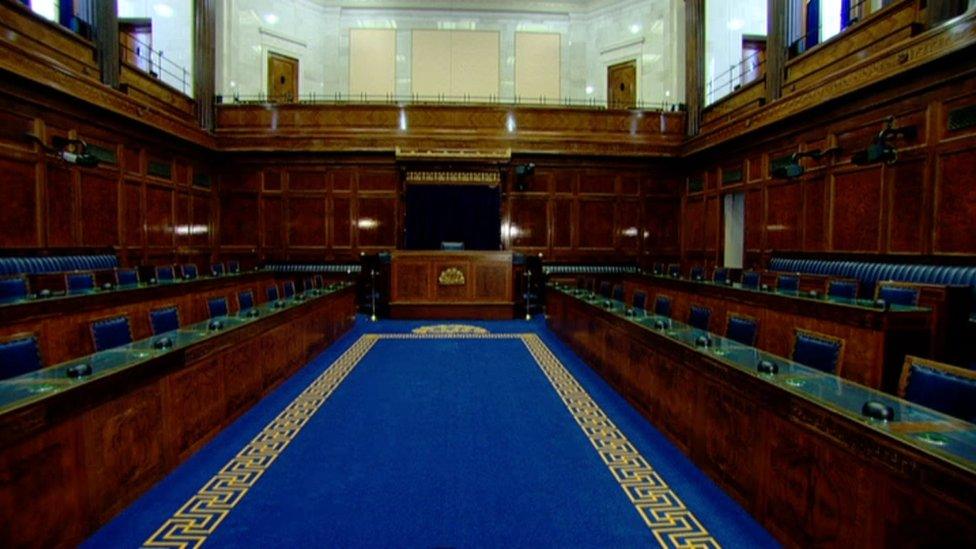Stormont: Criticism over £280k for MLAs' travel expenses
- Published
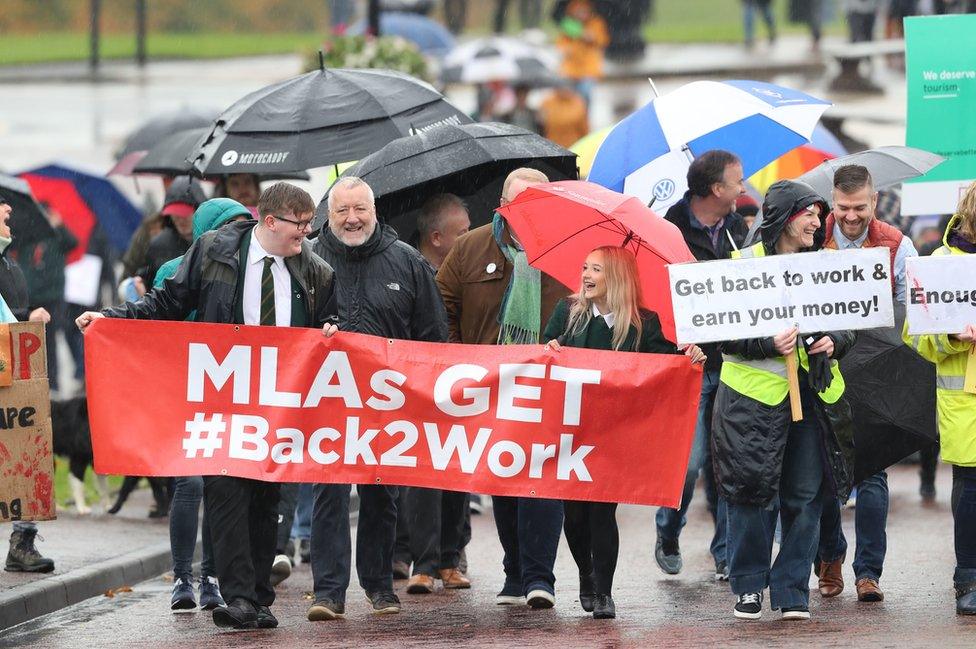
Several hundred protesters gathered at Stormont to mark 1,000 days without devolved government
Questions have been raised about whether the rules on how politicians at Stormont claim travel allowances are sufficient.
Sunday 13 October marks 1,000 days since devolution collapsed.
Assembly members (MLAs) claimed more than £280,000 for travelling to Stormont and within their constituencies from April 2018 until March 2019, figures show, external.
In January MLAs faced a salary cut but they can still claim travel expenses.
Northern Ireland has been without a devolved government since January 2017, when the power-sharing parties - the Democratic Unionist Party (DUP) and Sinn Féin - split in a bitter row.
Since devolution was suspended, MLAs have continued to use Parliament Buildings for functions including meetings, talks aimed at restoring devolution and constituency business.
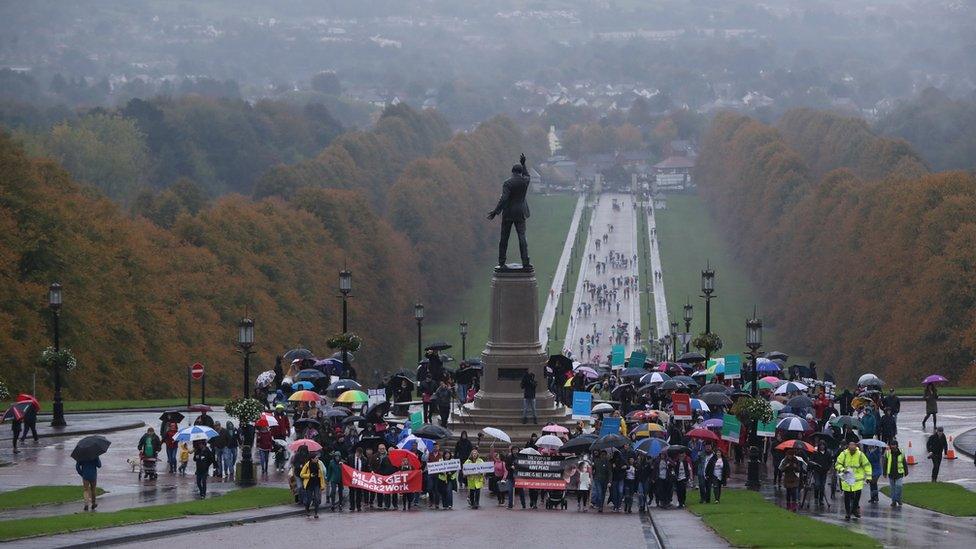
Demonstrators marched to Parliament Buildings, calling on MLAs to return to the assembly chamber
They are entitled to an annual allowance solely for travel to Stormont, ranging from £600 within Belfast to £6,200 in Fermanagh and South Tyrone, and one for travel in their constituency, which varies from £250 to £1,250 depending on location.
But Alan McQuillan, who sat on the Independent Financial Review Panel (IFRP), which used to set the rules on MLA pay and travel expenses, was critical of the politicians.
"I think this is now a disgrace - 1,000 days (without an assembly) and they're still claiming it," he said.
"I have no doubt the members get a lot of facilities at Stormont - they have offices at Stormont and many of them are going up and down to use those facilities - but the public is paying for that.
"Is the public really getting the service they deserve?"
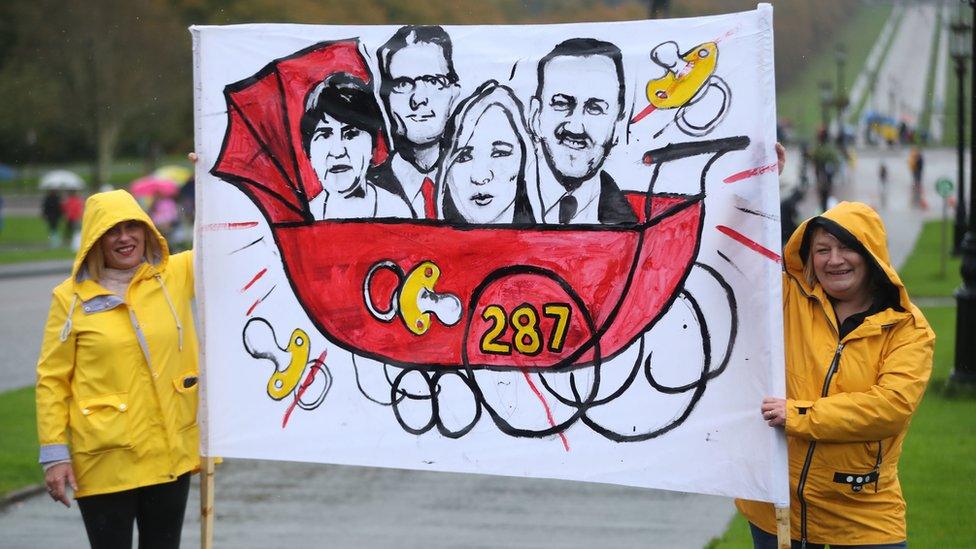
Protesters at Stormont carried placards to express their frustration at the political deadlock
The IFRP's members left their post in June 2016 when their appointments expired and since devolution collapsed the Northern Ireland Office (NIO) holds responsibility for MLAs' pay and expenses.
In a statement, the NIO said the Northern Ireland Secretary Julian Smith would keep the matter "under review".
On Sunday afternoon protesters held a rally at Stormont to mark 1,000 days without the assembly.
Hundreds of demonstrators carried banners and sang songs as they called for MLAs to return to work in the chamber.
Protesters said they were "frustrated" and "fed up" by the lack of political activity at Stormont.

How do MLAs' travel expenses work?
In 2016, the Independent Financial Review Panel, external decided that the full allowance to an MLA should be based on a minimum of 72 days of attendance at Stormont each financial year and had to be accompanied by a signed declaration.
It was based on existing mileage allowances for an estimated 72 return journeys a year from constituency offices to Parliament Buildings with an amount added for travel within each constituency "based on the geographical size of each constituency".
It was automatically reduced by 1% for every day fewer than 72.
In late 2018, it was recommended that the Northern Ireland Office increase the number of minimum attendance days at Stormont to 100, external, with politicians having to keep a record of their travel.
The recommendations also led to MLAs seeing their pay reduced from £49,500 to just under £36,000 in January 2019.

Mr McQuillan said he believed there was not enough monitoring in place to scrutinise claims for travel made by MLAs, referring to the signed form they submit in order to get their allowance.
"I don't believe in any expenses system it's wise to take things absolutely on trust," he added.
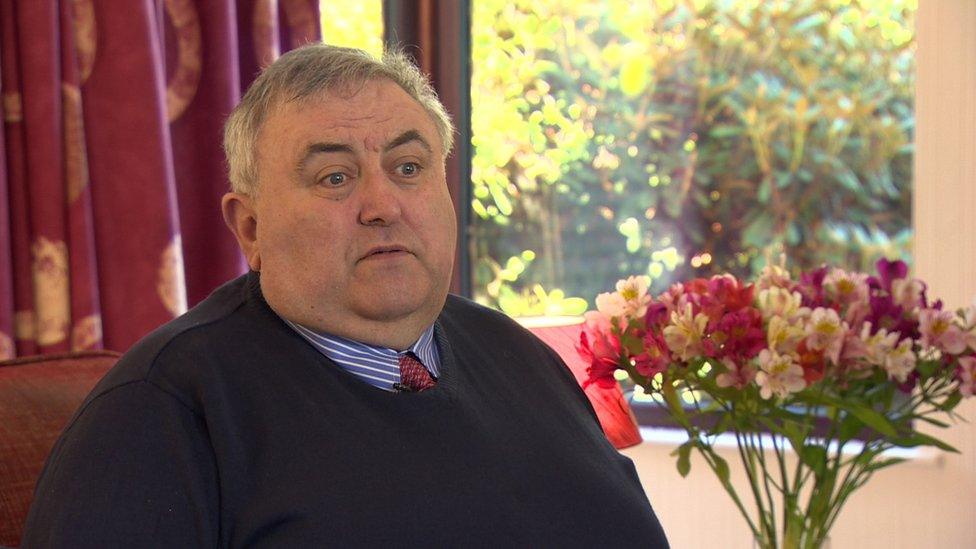
MLAs should consider whether the expenses system is rigorous enough, says Alan McQuillan
"Members themselves should be thinking about whether that's a sensible system to convince the public that they're getting value for money."
Expenses cover a wide range of costs including staff, office expenditure and resettlement grants for former MLAs.
According to the latest figures published on the assembly website, external, just over £5.6m was paid in expenses - excluding salaries - to sitting and former MLAs between April 2018 and March 2019.
Although all claimed a constituency allowance, only DUP leader Arlene Foster did not claim for travel to the assembly.
In the latest reporting period, external from April 2018 to June 2019, 10 MLAs did not claim any reimbursement for travelling to Parliament Buildings.
- Published5 January 2019
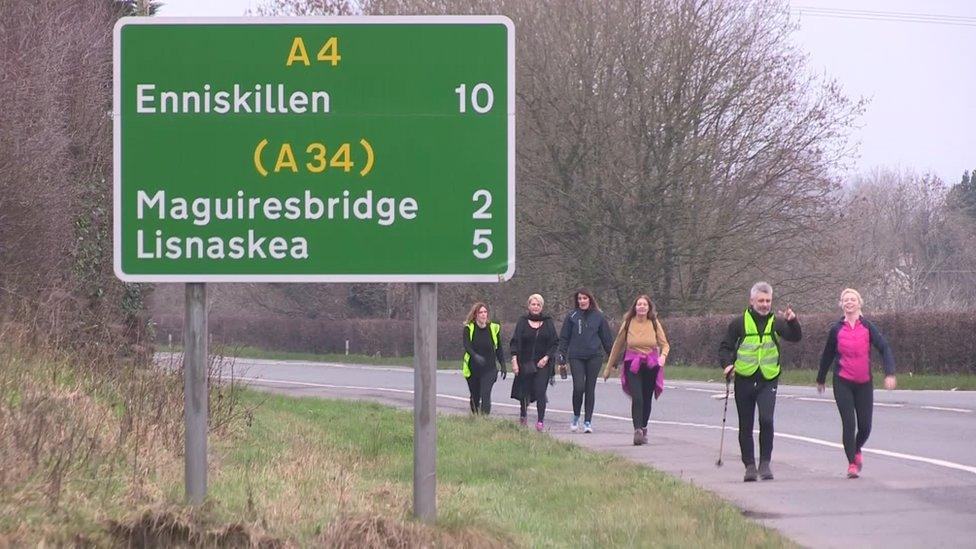
- Published6 September 2018
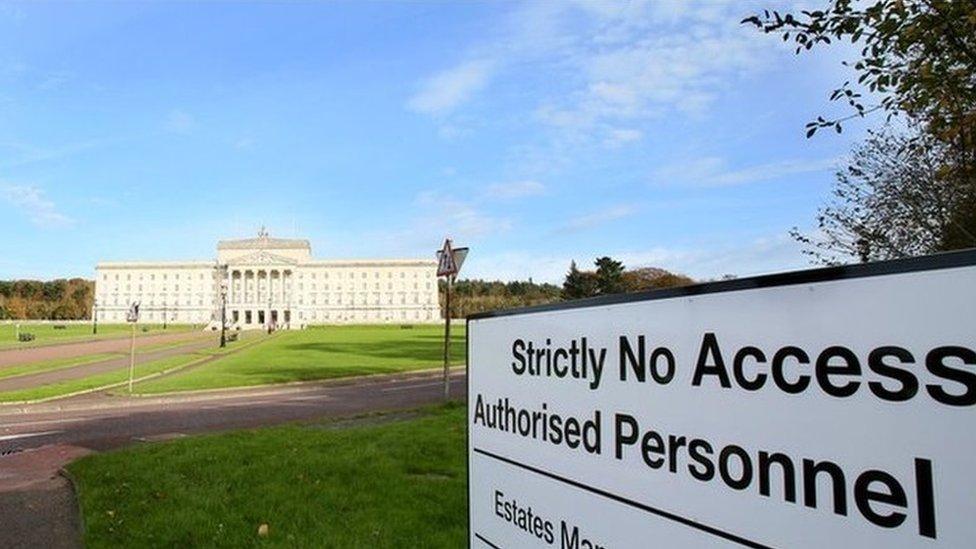
- Published4 July 2018
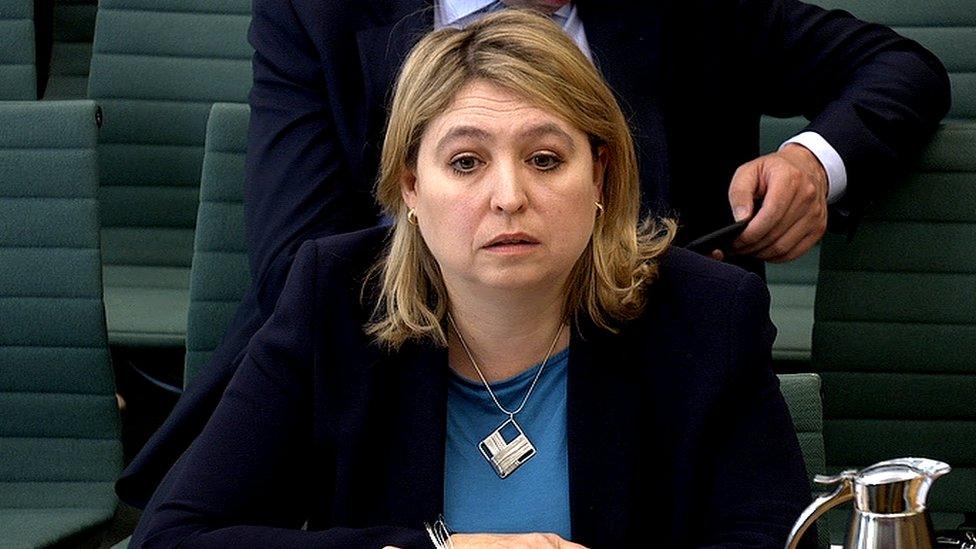
- Published9 January 2018
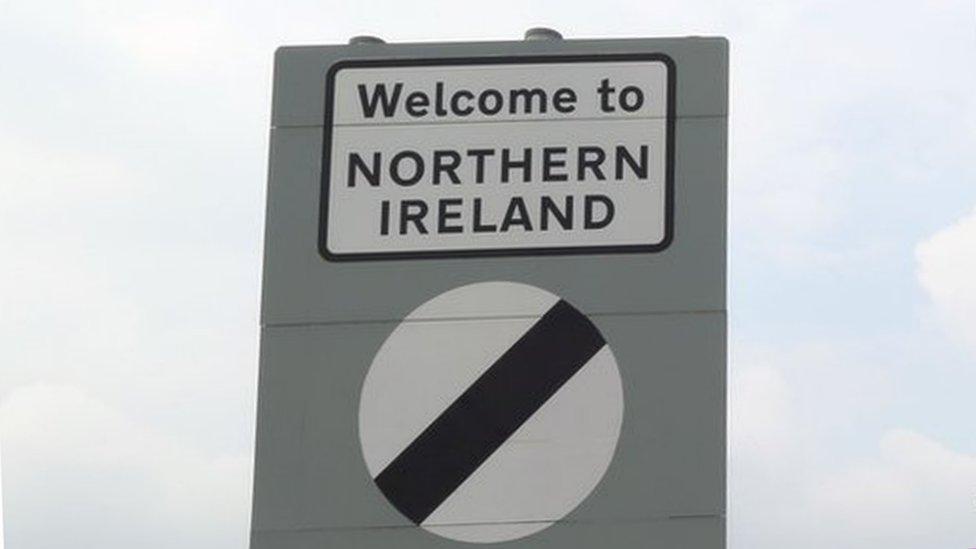
- Published15 December 2017
